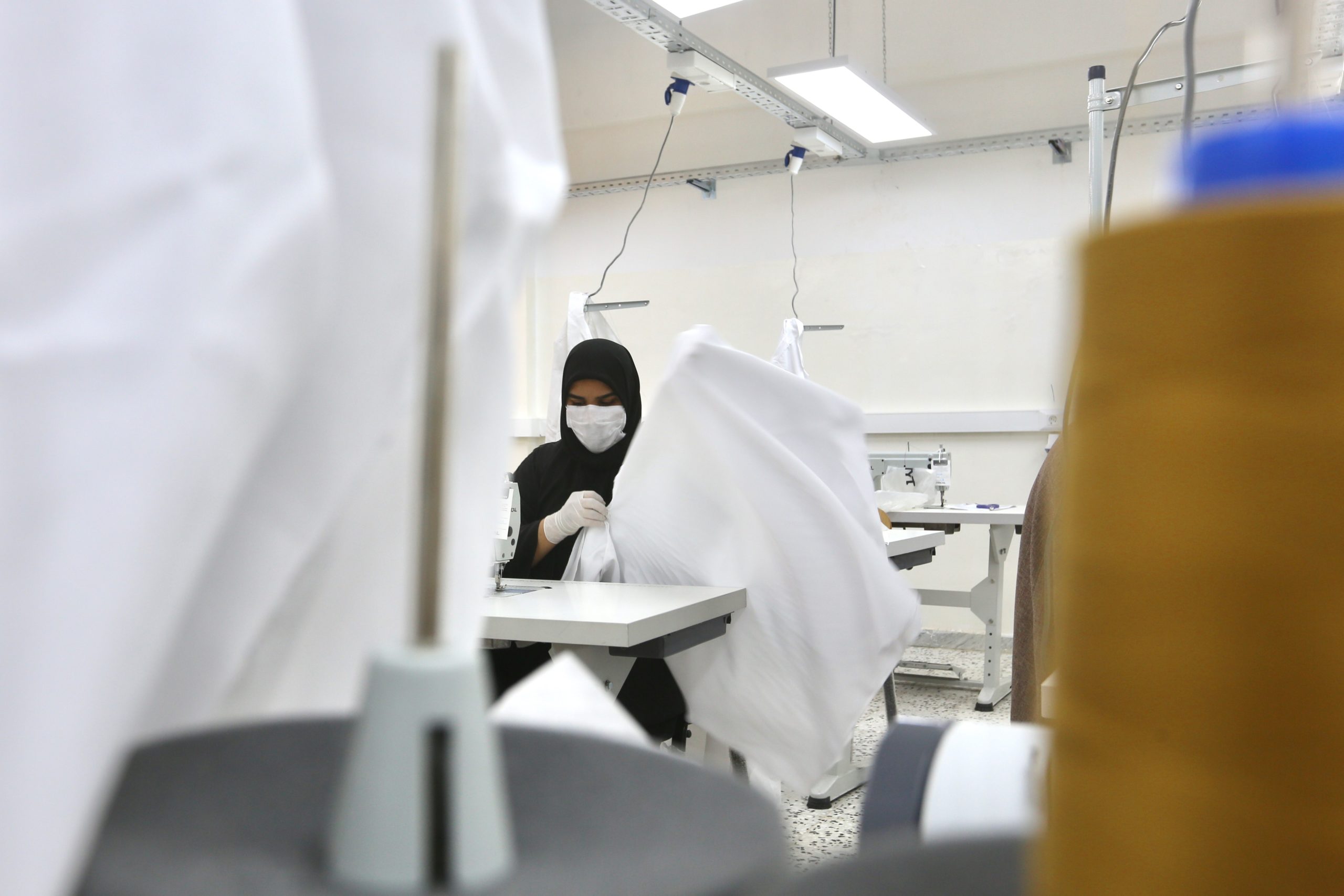DOWNLOAD PDF
THE ISSUE
In a region that gave birth to the Arab Spring and saw governments overthrown in Egypt, Tunisia, Algeria, and Libya, the latter descending into chaos and civil war that continues to this day, all coupled with a migrant crisis that shows no signs of ending, Amnesty International is profoundly concerned about the spread of the COVID-19 inside prisons, refugee camps, and migrant detention facilities. Economic malaise, and authoritarian leaders such as President Sisi in Egypt that have made it policy to lock up tens of thousands of prisoners of conscience, have raised fears of a serious and prolonged outbreak.
Throughout the region, Amnesty International has documented the denial of adequate medical care as a punitive measure against prisoners of conscience. Many prisoners and migrants in detention facilities across the region have pleaded with officials to address overcrowded, unhygienic and unsanitary conditions in prisons that put them at greater risk of contracting COVID-19.
Libya
Within the context of the worsening humanitarian crisis, the dangers of a widespread COVID-19 outbreak are compounded by the ongoing civil war, which has continued since 2011 despite calls for a humanitarian truce. Recent violations have included continued attacks on medical personnel, hospitals and medical facilities treating COVID 19 patients in Tripoli. Internally displaced persons (IDPs), migrants and refugees are especially vulnerable to the threat of a growing COVID-19 outbreak. Centers for detained asylum seekers are located in areas close to fighting, they are crowded and unsanitary, and detainees already have very limited access to health assistance. The UNHCR in Libya reports that facilitation of humanitarian assistance in Libya, for both ongoing programming and COVID-19 response interventions, is critical to ensure humanitarian organizations can continue to implement life-saving activities.
Egypt
Egyptian business owners have pressured the government to keep private businesses open, but many haven’t addressed workers’ concerns over their safety and their jobs. In addition to a sinking economy, protests have occurred outside of Egyptian prisons. Amnesty has repeatedly called Egypt the world’s largest open-air prison for critics, and concerns remain that the virus outbreak in prisons is worse than the authorities are indicating, and that the country remains unprepared to provide support for Egyptians who may eventually fall ill with COVID-19.
Tunisia
Since a national lockdown was announced, police have arrested at least 1,400 people for violating curfew or confinement measures. Detaining even more people, given the elevated risk of transmission, places their health in jeopardy and can only serve to further increase the current health crisis for everyone.
Algeria
The Algerian authorities are investing time in accelerating prosecutions and trials against activists, journalists and supporters of the Hirak movement, a peaceful protest movement working to bring radical change to the country.
RECOMMENDATIONS
The White House should:
- Demand that governments throughout region immediately and unconditionally release all activists, journalists, and human rights defenders detained solely for peacefully expressing their views.
- Demand that governments throughout MENA cease using the pandemic as pretext for further crackdowns on civil society and the broader population.
- Request the USG to provide adequate funding for the COVID-19 Global Humanitarian Response Plan.
ADDITIONAL RESOURCES
- On Egypt, “Release prisoners of conscience and other prisoners at risk amid coronavirus outbreak” (March 2020), about how the spread of COVID-19 is putting jailed Egyptian activists and human rights defenders at risk (available here)
- On Libya, “Historic discrimination threatens right to health of minorities in the south amid COVID-19” (April 2020), about how Libya authorities and the militias in control of southern population centers are not doing enough to ensure that marginalized communities are protected during the public health crisis (available here)
- On Tunisia, “Authorities in Tunisia should reduce number of detainees during COVID-19 crisis” (April 2020), about how numerous detainees remain at risk in pre-trial detention and police custody (available here)
- On Morocco/Western Sahara, “Detained journalists, peaceful protesters at risk of Covid-19, must be urgently released” (April 2020), about how authorities must release those arrested for peacefully protesting or expressing their views amid the spread of COVID-19 in prisons (available here)
- On Algeria, “Quash conviction and sentence against political leader Karim Tabbou” (March 2020), about how the authorities must release a political leader imprisoned soley for his political expression (available here)
FOR MORE INFORMATION, PLEASE CONTACT:
Philippe Nassif
Advocacy Director, Middle East & North Africa
(202) 768-5547
